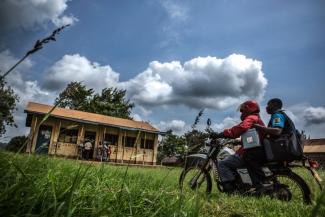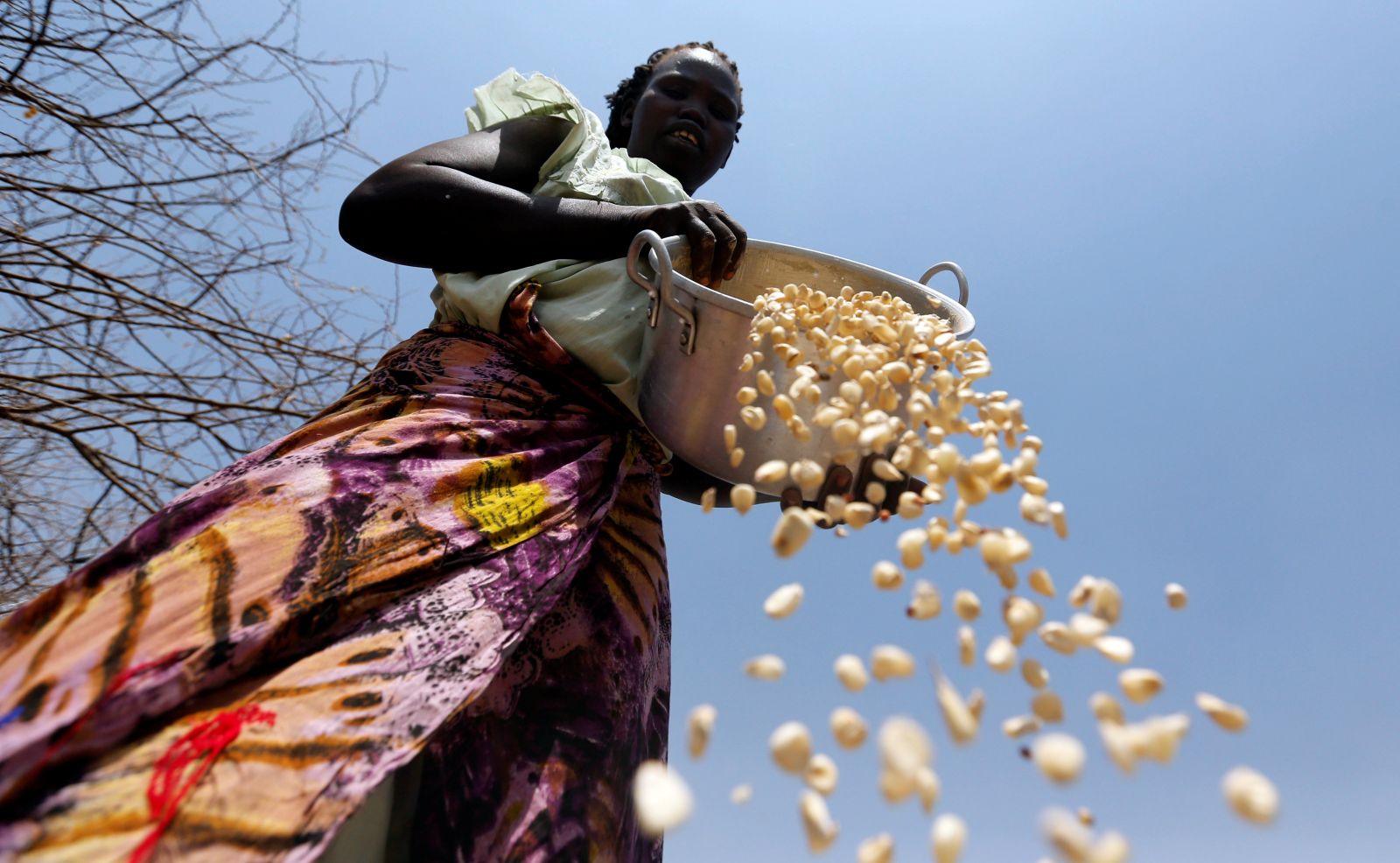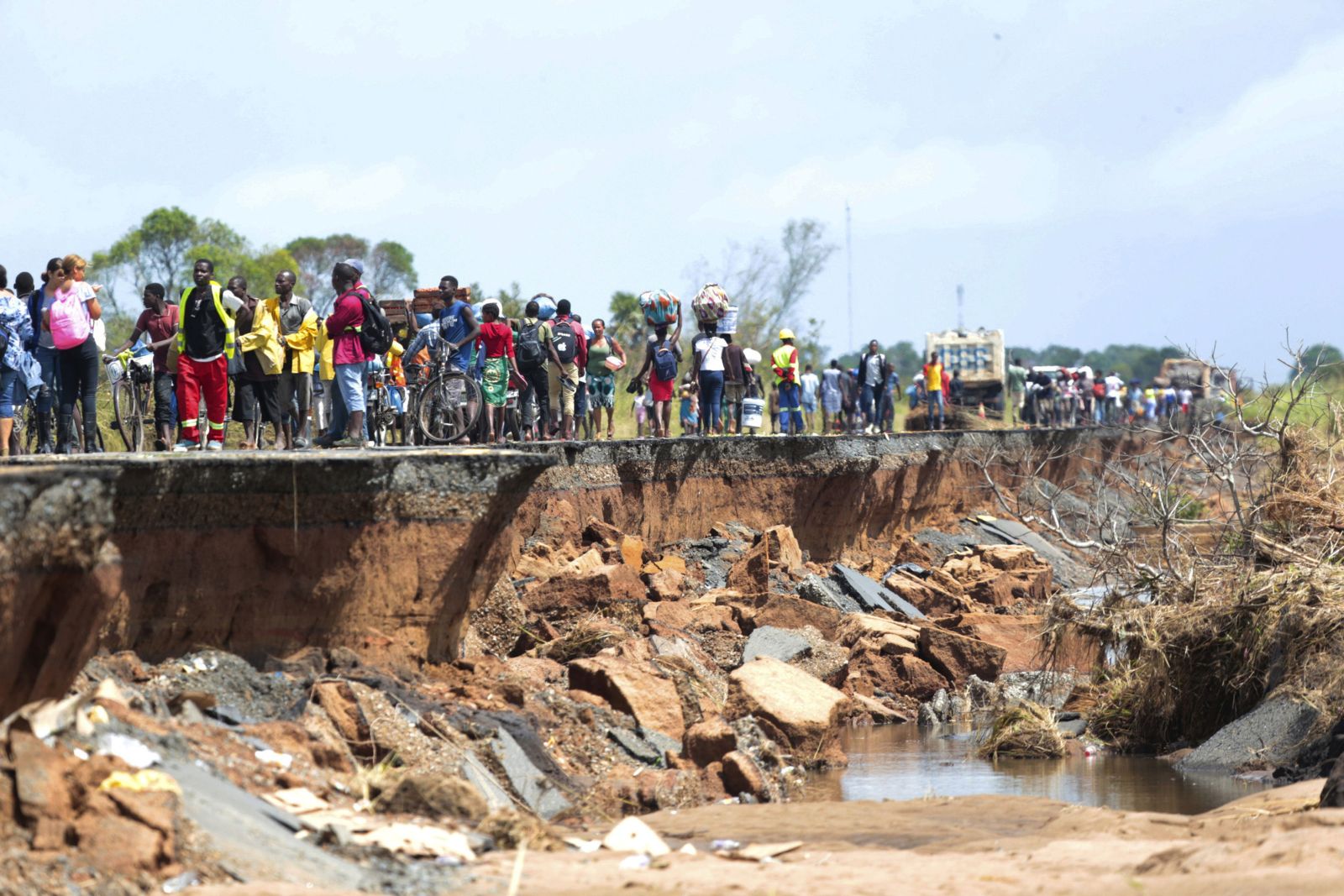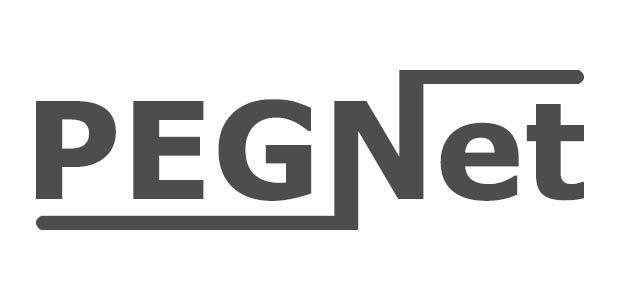Health supply chains
A STEP in the right direction

Supply chains in African countries are often inefficient or not well managed. Managing the supply chain for immunisation is a huge challenge since vaccines are temperature-sensitive and need to be kept cold during their long journey from production to use. Furthermore, vaccines must not expire before reaching their destination. Otherwise, clinics may run out of vaccines and thus miss opportunities to vaccinate children against life threatening diseases like pneumonia, meningitis and diarrhoea.
The six member states of the EAC – Burundi, Kenya, Rwanda, Tanzania, Uganda and, since 2016, South Sudan – share a joint vision for attaining “healthy and productive” populations. Well-functioning and strong health systems are essential to make this vision come true, and the professional management of health goods, including the uninterrupted supply of medical products, is a core pillar.
The ever-growing availability of vaccines, medicines and other health products is positive news. At the same time, it stretches health commodity supply chains, not least in low-income countries. Advances in technology, communication and infrastructure help to modernise supply chains, but there are too few supply chain managers with the necessary skills and knowledge. Their competence, however, is the bedrock of improvement.
Innovative training programme
A training course at the EAC’s new Centre of Excellence in Kigali is designed to make a difference. It is called STEP (Strategic Training Executive Programme) and combines academic learning with on-the-job training. STEP helps participants develop problem-solving skills and build teams. It is based on a systematic assessment of the professional competencies needed to manage supply chains.
STEP students are paired up with mentors from the private sector. It is important to put new skills into practice and build knowledge-sharing networks. Therefore, STEP ensures that students are exposed to practical experience for months on end, rather than only relying on classroom teaching.
Lucy Kanja was one of the participants in the first STEP course. She is the manager of a vaccine depot at Dagoretti in Nairobi, Kenya. She says the programme met her professional needs. In particular, she appreciates the idea of taking leadership methods from commercial logistics companies and adapting them to immunisation supply chains.
“At Dagoretti, we have a high turnover of workers, and I used to wonder how we could keep everything going,” she says. STEP taught her how to build teams, attract and retain top talent. “Today, I am mentoring three health workers. I teach them supply chain skills that help ensure effective vaccine management,” she reports.
Staff of Gavi, the Vaccine Alliance, interviewed her and other STEP participants for evaluation purposes. Joshua Obel, an operations director at the Kenya Medical Supplies Authority (KEMSA), considers the training course a “STEP in the right direction”. He says: “I have been to a lot of trainings during my career, and this is the only one that I will really be able to put into practice.”
By the end of 2016, 60 professionals from all supply chain levels in various East and West African countries will have graduated from the STEP programme. By 2020, the number should rise to up to 600 supply chain professionals contributing to the health of their communities.
Centre of excellence
STEP is run by the Regional Centre of Excellence for Vaccines, Immunisation and Health Supply Chain Management. The EAC established it in October 2015. It is based at the University of Rwanda in Kigali, but relies on the entire region’s universities to foster expertise and train a new generation of skilled managers. Ultimately, the goal is to ensure that essential and potentially life-saving health products reach everyone in need, no matter where they live.
The Centre is the fruit of a collaboration between the EAC and a wide range of partners, both public and private. They include the UN Children's Fund (UNICEF), the UN Population Fund (UNFPA), the World Health Organization (WHO), the German KfW Development Bank and the Bill & Melinda Gates Foundation. Private sector partners include the logistics company United Parcel Service (UPS) and the International Federation of Pharmaceutical Wholesalers (IFPW). UPS is providing logistics know-how and helps the Centre to build on some of the development approaches its senior managers use. The IFPW, which represents more than forty companies, funds scholarships for high-potential students. It is also sharing industry insights on supply chain management and supporting mentorship programmes.
Gavi helped to establish the Centre, enabling it to complete its training strategy and launch its programme. The experience of the LOGIVAC Centre in Benin, which pursues similar goals in West Africa, has proved useful in Kigali moreover. Gavi’s mission is to support the world’s poorest countries to improve immunisation coverage.
Alan Brooks works for Gavi, the Vaccine Alliance, as the director for health systems and immunisation strengthening. (Fotokredit Autorenbild: Gavi/Oscar Seijkens)
abrooks@gavi.org










